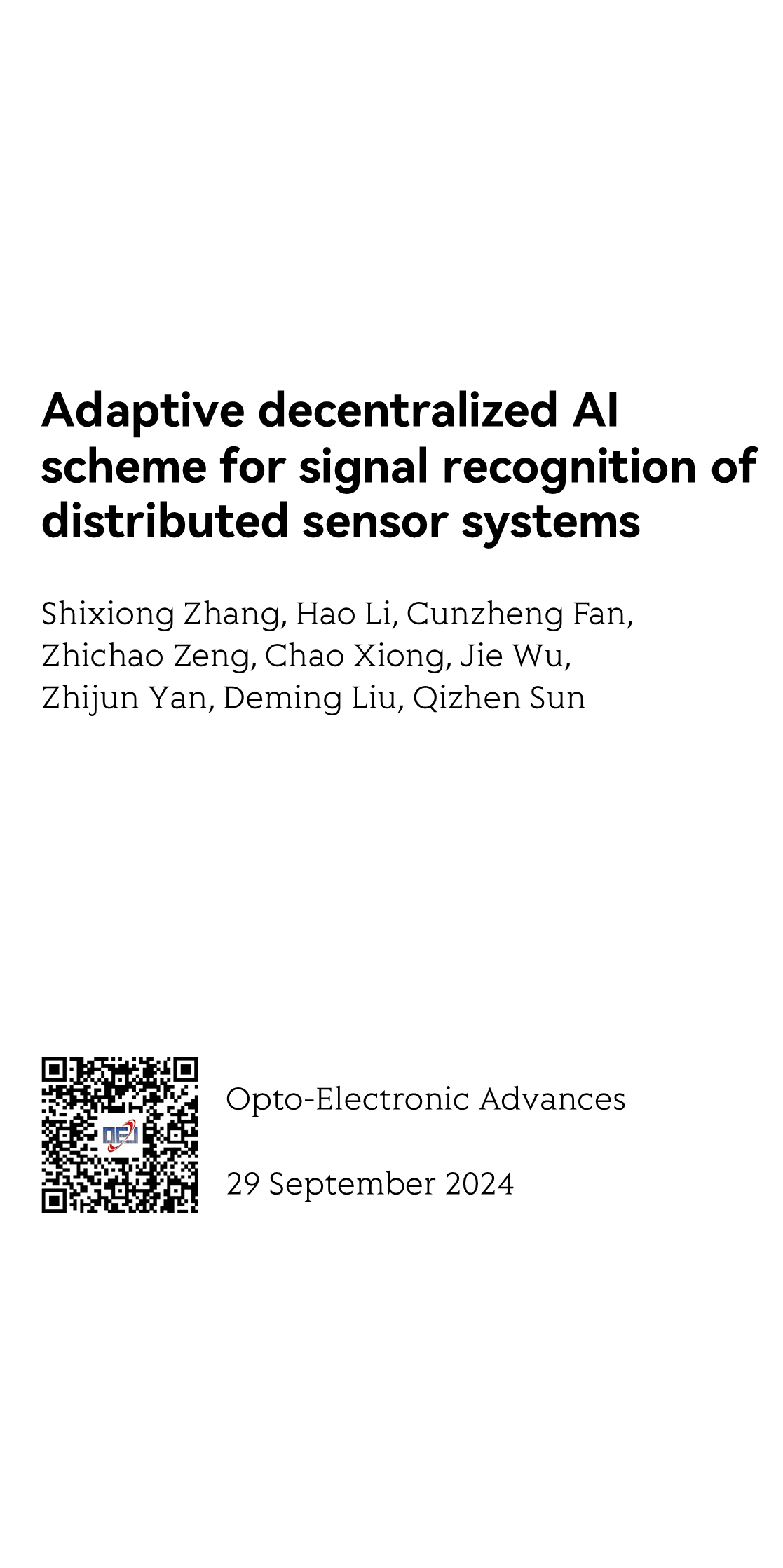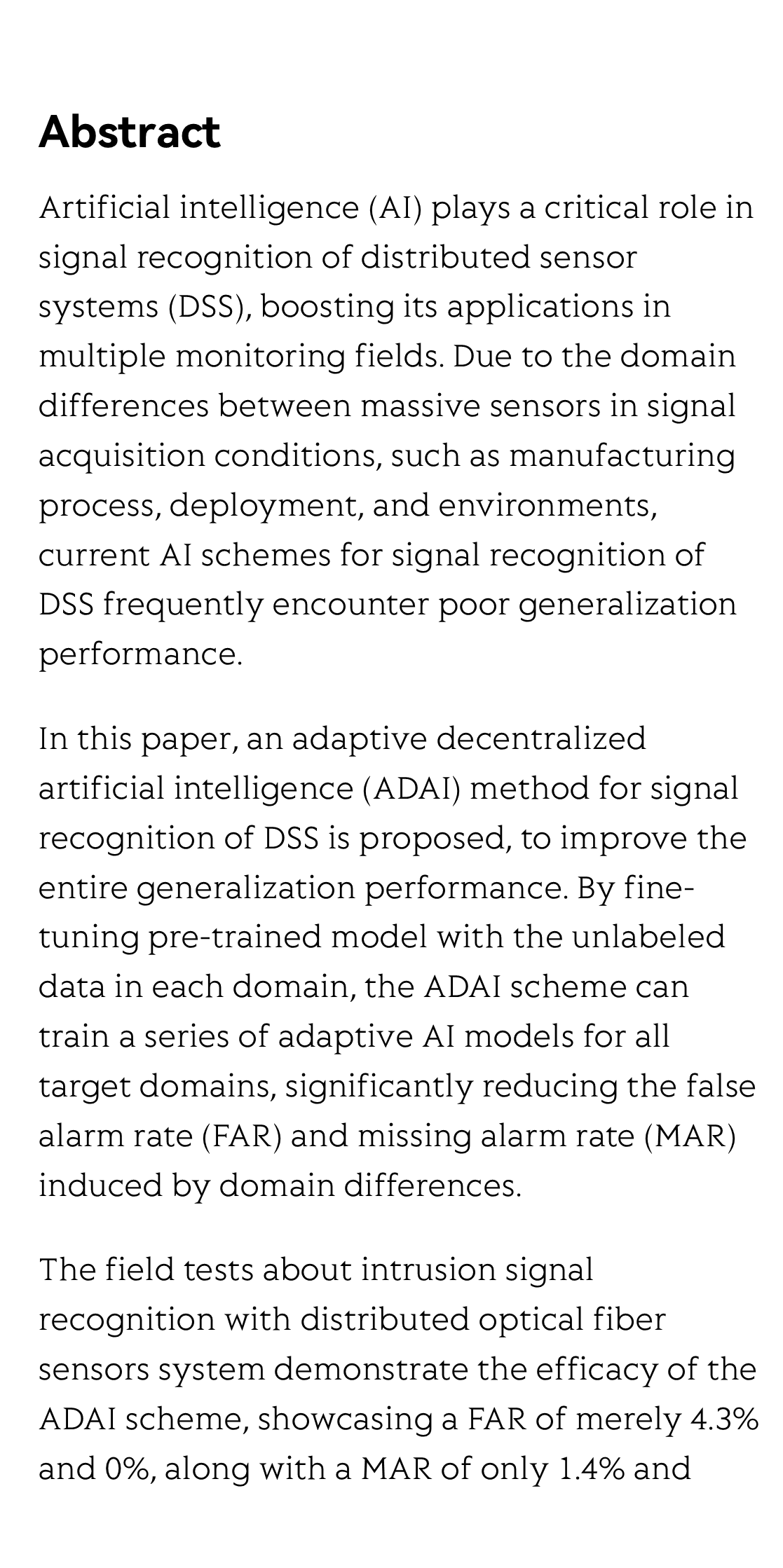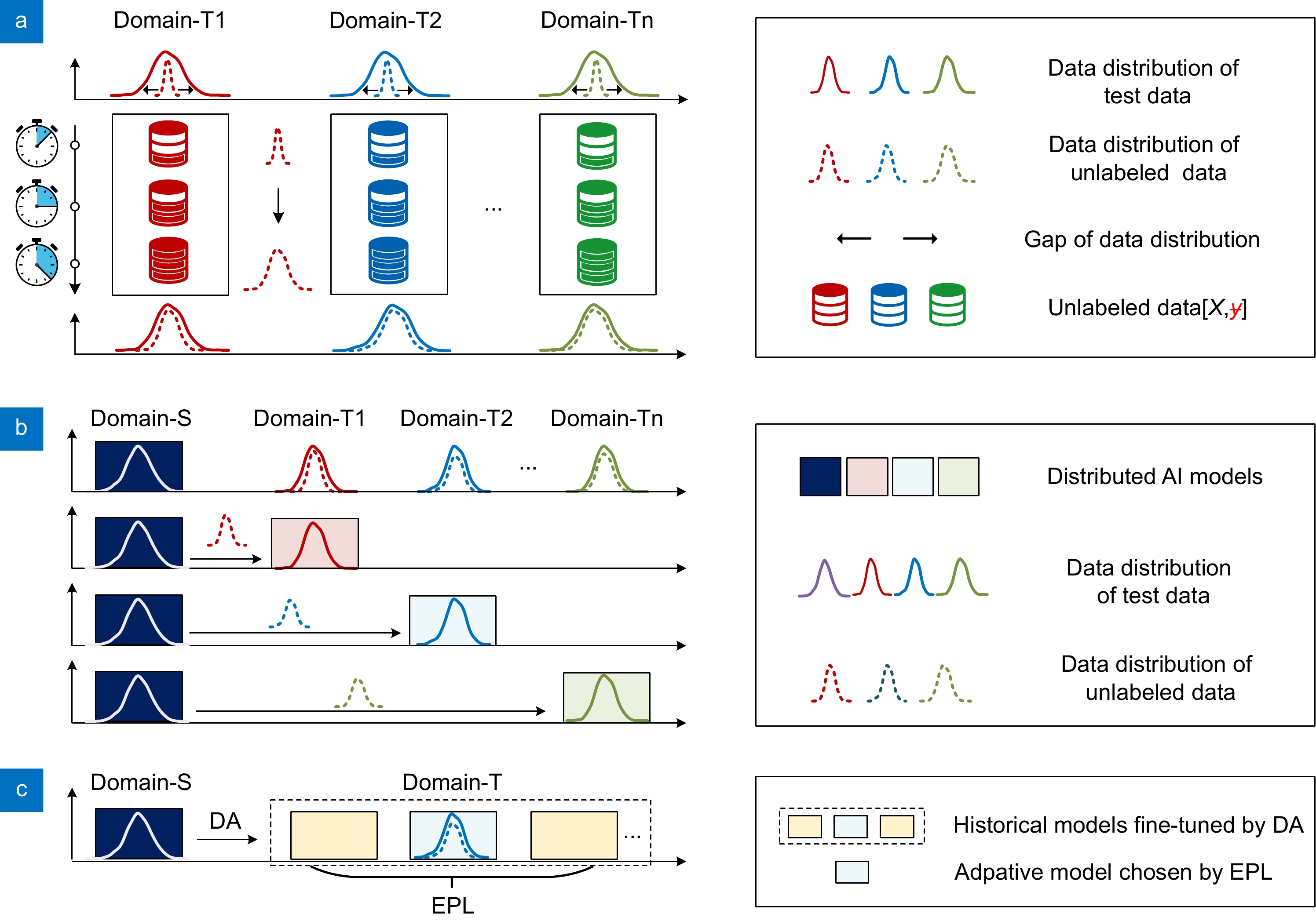(Peer-Reviewed) Adaptive decentralized AI scheme for signal recognition of distributed sensor systems
Shixiong Zhang 张世雄 ¹, Hao Li 李豪 ¹, Cunzheng Fan 范存政 ¹, Zhichao Zeng 曾志超 ¹, Chao Xiong 熊超 ⁵, Jie Wu 吴杰 ⁶, Zhijun Yan 闫志君 ¹ ³ ⁴, Deming Liu 刘德明 ¹, Qizhen Sun 孙琪真 ¹ ² ³ ⁴
¹ School of Optical and Electronic Information, National Engineering Research Center of Next Generation Internet Access-system, Huazhong University of Science and Technology, Wuhan 430074, China
中国 武汉 华中科技大学光学与电子信息学院 下一代互联网接入系统国家工程研究中心
² PGMF and School of Physics, Huazhong University of Science and Technology, Wuhan 430074, China
中国 武汉 华中科技大学物理学院 精密重力测量研究设施
³ Jinyinhu Laboratory, Wuhan 430048, China
中国 武汉 金银湖实验室
⁴ Optics Valley Laboratory, Wuhan 430074, China
中国 武汉 光谷实验室
⁵ Nanjing Research Institute of Electronic Equipment, Nanjing 210007, China
中国 南京 南京电子设备研究所
⁶ Wenzhou Quality and Technology Testing Research Institute, Wenzhou 325000, China
中国 温州 温州市质量技术检测科学研究院
Opto-Electronic Advances, 2024-09-29
Abstract
Artificial intelligence (AI) plays a critical role in signal recognition of distributed sensor systems (DSS), boosting its applications in multiple monitoring fields. Due to the domain differences between massive sensors in signal acquisition conditions, such as manufacturing process, deployment, and environments, current AI schemes for signal recognition of DSS frequently encounter poor generalization performance.
In this paper, an adaptive decentralized artificial intelligence (ADAI) method for signal recognition of DSS is proposed, to improve the entire generalization performance. By fine-tuning pre-trained model with the unlabeled data in each domain, the ADAI scheme can train a series of adaptive AI models for all target domains, significantly reducing the false alarm rate (FAR) and missing alarm rate (MAR) induced by domain differences.
The field tests about intrusion signal recognition with distributed optical fiber sensors system demonstrate the efficacy of the ADAI scheme, showcasing a FAR of merely 4.3% and 0%, along with a MAR of only 1.4% and 2.7% within two specific target domains. The ADAI scheme is expected to offer a practical paradigm for signal recognition of DSS in multiple application fields.
High-resolution tumor marker detection based on microwave photonics demodulated dual wavelength fiber laser sensor
Jie Hu, Weihao Lin, Liyang Shao, Chenlong Xue, Fang Zhao, Dongrui Xiao, Yang Ran, Yue Meng, Panpan He, Zhiguang Yu, Jinna Chen, Perry Ping Shum
Opto-Electronic Advances
2024-12-16
Ultra-high-Q photonic crystal nanobeam cavity for etchless lithium niobate on insulator (LNOI) platform
Zhi Jiang, Cizhe Fang, Xu Ran, Yu Gao, Ruiqing Wang, Jianguo Wang, Danyang Yao, Xuetao Gan, Yan Liu, Yue Hao, Genquan Han
Opto-Electronic Advances
2024-10-31







